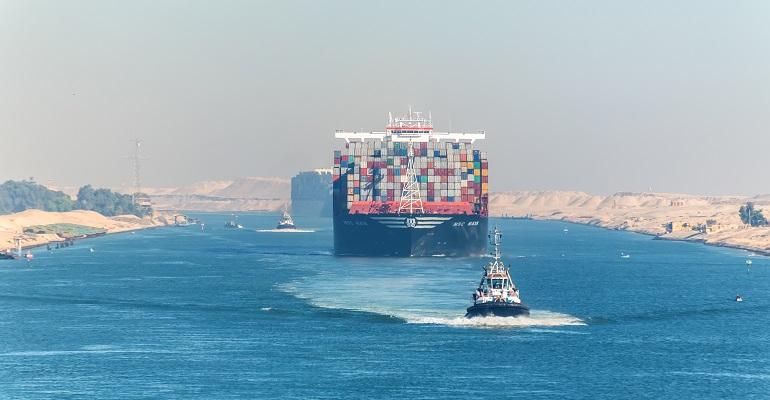“You must consider the wider implications of precipitate action,” or cautionary words to that effect. Such will be the natural reactions of diplomats and politicians to any unforeseen event that seriously incommodes their harmony and requires urgent decision making.
The Houthi “offensive” against merchant shipping in the Red Sea is now more than a month old and apart from stern words about the consequences of such piratical behaviour and some useful defensive action by naval units in the area, the situation is, like some of those ships standing off this important trade lane, drifting.
There have been plenty of wise words spoken and written about the fear of escalation, should robust action be taken against the pirate perpetrators of these outrages against international shipping, but there seems to be a growing realisation that nothing is going to happen in a hurry, while the diplomatic alternatives are chewed over. But trade won’t wait, which is why more than a thousand ships, which would otherwise have used the Red Sea route, have already diverted around the cape of Good Hope.
Diversions of this magnitude are not just a matter of downloading a new set of charts, as they involve a whole range of practical implications, even though the longer voyages may have positive impacts upon containership utilisation. The term “range anxiety” may be associated with the drivers of electric vehicles, but operators of big ships, suddenly faced with some two weeks of extra steaming, will be also be worrying about issues of bunkering, problems with consumables and with some ships, stability, along with the obvious manpower issues.
When the Suez Canal was last closed in 1973 (excluding the Ever Given incident in 2021), it took time for the ship service infrastructure around the Cape, which focussed on South Africa, to build up its capabilities. The ports of South Africa are arguably no more capable today in their ability to spring into action to provide services to passing ships. And while it is the southern summer around the Cape of Storms, weather is always an important factor on that passage and there might be some reservations about Asia – Europe containerships, with boxes ten high on deck, if the crisis continues into the southern autumn.
The costs of the diversions and delays, along with the rate rises, are already registering with shippers, but should the Red Sea remain a no-go area for any appreciable time, it will make itself felt in everything from shortages to inflationary pressure. There are the economic effects upon Egypt, which is busily building up billions of dollars’ worth of investment in the Canal and its burgeoning economic zone and needs stability, above all else, if it is all to progress.
And while there are carriers who will hesitate to take their ships into what has become a war zone, thinking about the effects upon their crews, insurance and image, there are others who will press on, playing the famous percentage game and hoping that friendly warships will be on hand to keep them safe, or the drones will not be aimed at them.
There have been already worried statements from welfare organisations and seafarers’presentative bodies about stress, mental health, and the uncertainties attendant to operating in suddenly hazardous waters. It might be suggested that seafarers, facing a resurgence of Somali piracy, hostage-takers ranging around the Gulf of Guinea and sea-robbers in the waters of South-East Asia, along with the obvious dangers in the Black Sea, have quite sufficient to cope with. It is not exactly an encouragement to crew retention, or to persuade a new generation that the sea life is one of pleasurable variety.
And sadly, the ability to depend upon naval protection is not entirely a given, when it is revealed that several navies are having to lay up, recycle or sell perfectly useful warships, for the lack of sailors to operate them. A life on the rolling main, in the limited accommodation available aboard warships, or more so, in submarines, has limited attraction for the youth of today. So, the politicians better stop drifting and clear up the Red Sea pirates, while they can.
Copyright © 2024. All rights reserved. Seatrade, a trading name of Informa Markets (UK) Limited.
Add Seatrade Maritime News to your Google News feed.  |

